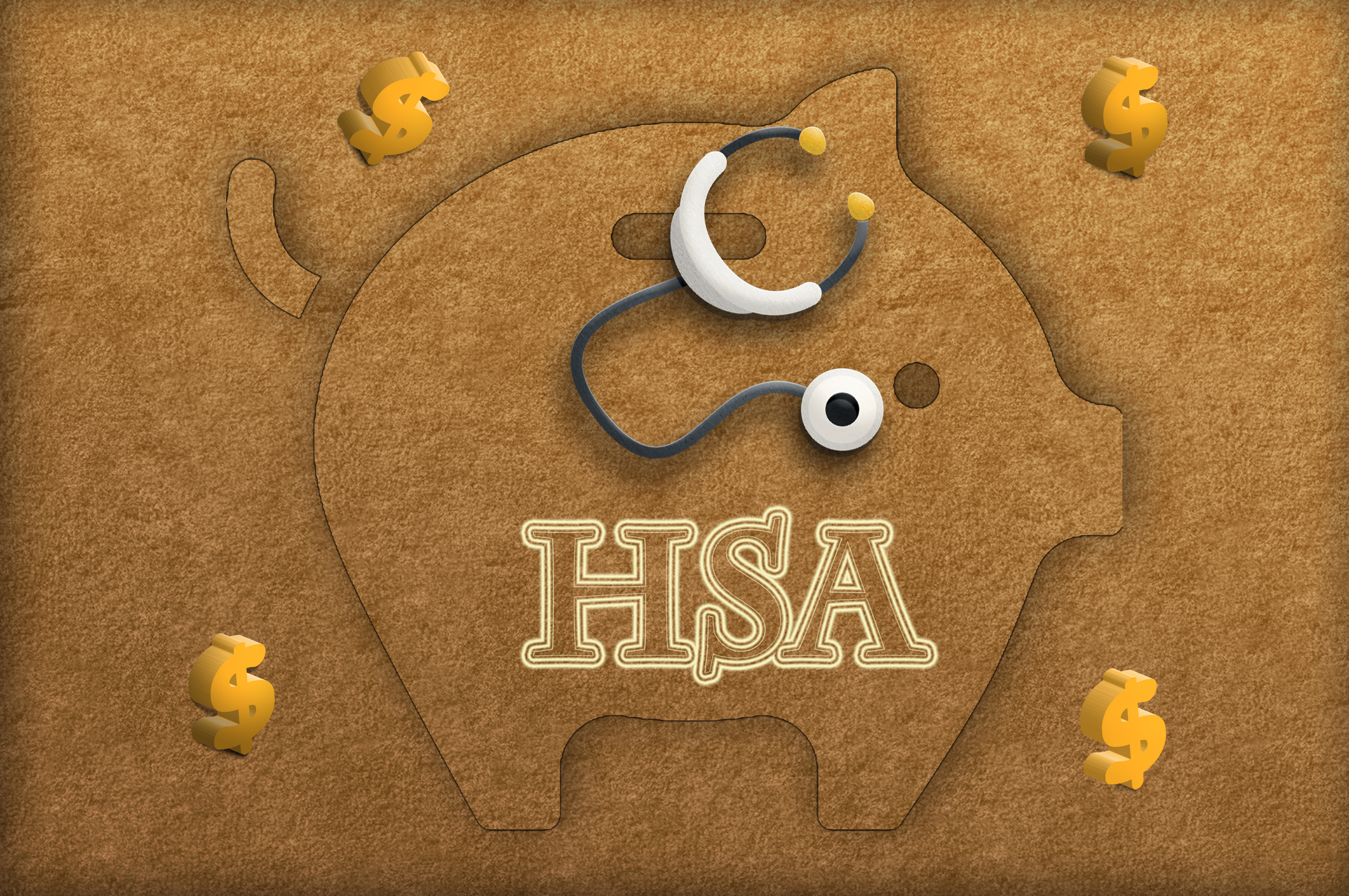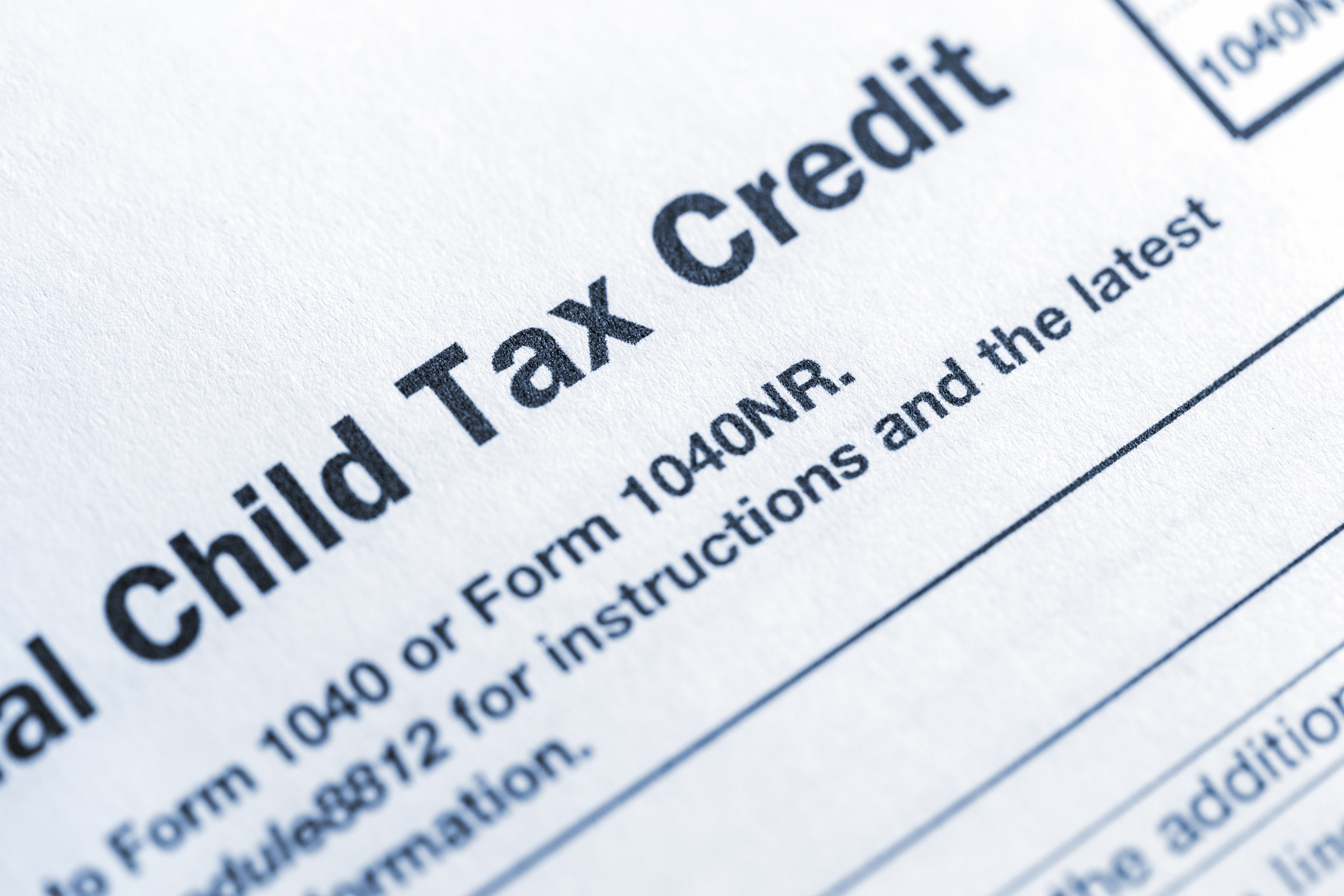The Upside of a Lower Income
If you lost your job this year, you may now qualify for several tax breaks you couldn't get when you earned more money.

Profit and prosper with the best of Kiplinger's advice on investing, taxes, retirement, personal finance and much more. Delivered daily. Enter your email in the box and click Sign Me Up.
You are now subscribed
Your newsletter sign-up was successful
Want to add more newsletters?

Delivered daily
Kiplinger Today
Profit and prosper with the best of Kiplinger's advice on investing, taxes, retirement, personal finance and much more delivered daily. Smart money moves start here.

Sent five days a week
Kiplinger A Step Ahead
Get practical help to make better financial decisions in your everyday life, from spending to savings on top deals.

Delivered daily
Kiplinger Closing Bell
Get today's biggest financial and investing headlines delivered to your inbox every day the U.S. stock market is open.

Sent twice a week
Kiplinger Adviser Intel
Financial pros across the country share best practices and fresh tactics to preserve and grow your wealth.

Delivered weekly
Kiplinger Tax Tips
Trim your federal and state tax bills with practical tax-planning and tax-cutting strategies.

Sent twice a week
Kiplinger Retirement Tips
Your twice-a-week guide to planning and enjoying a financially secure and richly rewarding retirement

Sent bimonthly.
Kiplinger Adviser Angle
Insights for advisers, wealth managers and other financial professionals.

Sent twice a week
Kiplinger Investing Weekly
Your twice-a-week roundup of promising stocks, funds, companies and industries you should consider, ones you should avoid, and why.

Sent weekly for six weeks
Kiplinger Invest for Retirement
Your step-by-step six-part series on how to invest for retirement, from devising a successful strategy to exactly which investments to choose.
I usually earn too much money to contribute to a Roth IRA. But I lost my job a few months ago, so my 2008 income will be a lot lower than it has been in previous years. Can I contribute to a Roth this year?
That's one of the upsides of a lower income: You may be able to contribute to a Roth IRA and take advantage of other tax benefits this year.
You can contribute up to $5,000 to a Roth IRA if your income falls below $101,000 if you're single, or $159,000 if you're married filing a joint tax return. (You can contribute $6,000 if you're 50 or older.) The contribution limit gradually phases out until your income reaches $116,000 if single, or $169,000 if married filing jointly.
From just $107.88 $24.99 for Kiplinger Personal Finance
Become a smarter, better informed investor. Subscribe from just $107.88 $24.99, plus get up to 4 Special Issues

Sign up for Kiplinger’s Free Newsletters
Profit and prosper with the best of expert advice on investing, taxes, retirement, personal finance and more - straight to your e-mail.
Profit and prosper with the best of expert advice - straight to your e-mail.
Even if you get a new job and earn more next year, you still can keep your 2008 contributions in a Roth, where they can grow tax-free for retirement. See Why You Need a Roth IRA for more information.
You need to have some earned income to qualify for a Roth. However, someone who was unemployed for the full year might be able to make Roth contributions if his or her spouse had earned income. See Contribute to an IRA for Your Spouse for the rules.
A lower income may also let you qualify for other benefits that you don't usually get, such as the retirement savers' tax credit, which can help you afford to keep contributing to your retirement accounts in a tough year. You can receive a credit of up to $1,000 if you contribute to an IRA, Roth IRA, 401(k) or other retirement plan if your adjusted gross income in 2008 is less than $26,500 if single, or $53,000 if married.
You might also qualify to convert a traditional IRA to a Roth if your income is below $100,000 (whether married or single). That income limit will disappear in 2010. It's only worthwhile to convert to a Roth, however, if you can afford to pay the tax bill without having to tap the account, which could be tough in a year when you've lost your job.
You could also get a second chance to receive an economic-stimulus rebate check if you're income was too high the first time around. The payment was actually an advance on a credit that was created for 2008 tax returns. But to get the money into people's hands quickly to stimulate the economy, Congress had the IRS make a prepayment of the credit, which meant that the rebate was figured based on information from your 2007 return.
The rebate amount started to phase out if your 2007 adjusted gross income was more than $75,000 for single filers, or more than $150,000 for married couples filing jointly. If you earned less in 2008, then you'll be able to claim the rebate when you file your 2008 taxes.
For help calculating whether you'll get a rebate, use the Kiplinger Tax Rebate Calculator.
You could also qualify for the Hope and Lifetime Learning credits this year if your 2008 income is less than $58,000 if you're single, or $116,000 if you file a joint return. If you earned more than that, you could still qualify for the tuition-and-fees deduction, which was extended for 2008 and 2009 as part of the financial-rescue bill. See Tax Breaks for College Costs for more details.
And don't forget that your job-search expenses will be tax-deductible, as long as you're looking in the same line of work—even if your job search is unsuccessful. See Tax Write-Offs for Job-Hunting Expenses for details. And if you get a job in a new town, you may be able to write off your moving expenses. The new job must be at least 50 miles farther from your home than your old job was. For more information see Tax Deductions and Expenses of Changing Jobs. You do not need to itemize to qualify.
Profit and prosper with the best of Kiplinger's advice on investing, taxes, retirement, personal finance and much more. Delivered daily. Enter your email in the box and click Sign Me Up.

As the "Ask Kim" columnist for Kiplinger's Personal Finance, Lankford receives hundreds of personal finance questions from readers every month. She is the author of Rescue Your Financial Life (McGraw-Hill, 2003), The Insurance Maze: How You Can Save Money on Insurance -- and Still Get the Coverage You Need (Kaplan, 2006), Kiplinger's Ask Kim for Money Smart Solutions (Kaplan, 2007) and The Kiplinger/BBB Personal Finance Guide for Military Families. She is frequently featured as a financial expert on television and radio, including NBC's Today Show, CNN, CNBC and National Public Radio.
-
 How Much It Costs to Host a Super Bowl Party in 2026
How Much It Costs to Host a Super Bowl Party in 2026Hosting a Super Bowl party in 2026 could cost you. Here's a breakdown of food, drink and entertainment costs — plus ways to save.
-
 3 Reasons to Use a 5-Year CD As You Approach Retirement
3 Reasons to Use a 5-Year CD As You Approach RetirementA five-year CD can help you reach other milestones as you approach retirement.
-
 Your Adult Kids Are Doing Fine. Is It Time To Spend Some of Their Inheritance?
Your Adult Kids Are Doing Fine. Is It Time To Spend Some of Their Inheritance?If your kids are successful, do they need an inheritance? Ask yourself these four questions before passing down another dollar.
-
 The 'Scrooge' Strategy: How to Turn Your Old Junk Into a Tax Deduction
The 'Scrooge' Strategy: How to Turn Your Old Junk Into a Tax DeductionTax Deductions We break down the IRS rules for non-cash charitable contributions. Plus, here's a handy checklist before you donate to charity this year.
-
 New IRS Changes to FSA Contribution Limits for 2026: What to Know
New IRS Changes to FSA Contribution Limits for 2026: What to KnowHealth Care Flexible Spending Accounts have tax advantages worth looking into, especially in light of new IRS changes.
-
 Is a New $25,000 Health Care Tax Deduction Coming in 2026?
Is a New $25,000 Health Care Tax Deduction Coming in 2026?Tax Policy A proposal from GOP Sen. Josh Hawley adds to the chatter about health care affordability.
-
 An HSA Sounds Great for Taxes: Here’s Why It Might Not Be Right for You
An HSA Sounds Great for Taxes: Here’s Why It Might Not Be Right for YouHealth Savings Even with the promise of ‘triple tax benefits,’ a health savings account might not be the best health plan option for everyone.
-
 How the 2025 Child Tax Credit Rules Impact Single Parents
How the 2025 Child Tax Credit Rules Impact Single ParentsTax Credits New changes to family tax credits, like the Child Tax Credit, will impact the eligibility of some households.
-
 Money for Your Kids? Three Ways Trump's ‘Big Beautiful Bill’ Impacts Your Child's Finances
Money for Your Kids? Three Ways Trump's ‘Big Beautiful Bill’ Impacts Your Child's FinancesTax Tips The Trump tax bill could help your child with future education and homebuying costs. Here’s how.
-
 Key 2025 Tax Changes for Parents in Trump's Megabill
Key 2025 Tax Changes for Parents in Trump's MegabillTax Changes Are you a parent? The so-called ‘One Big Beautiful Bill’ (OBBB) impacts several key tax incentives that can affect your family this year and beyond.
-
 2026 HSA Contribution Limits Are Set: What to Know Now
2026 HSA Contribution Limits Are Set: What to Know NowHealth Savings The IRS says Health Savings Account contribution limits will increase again next year due to inflation.